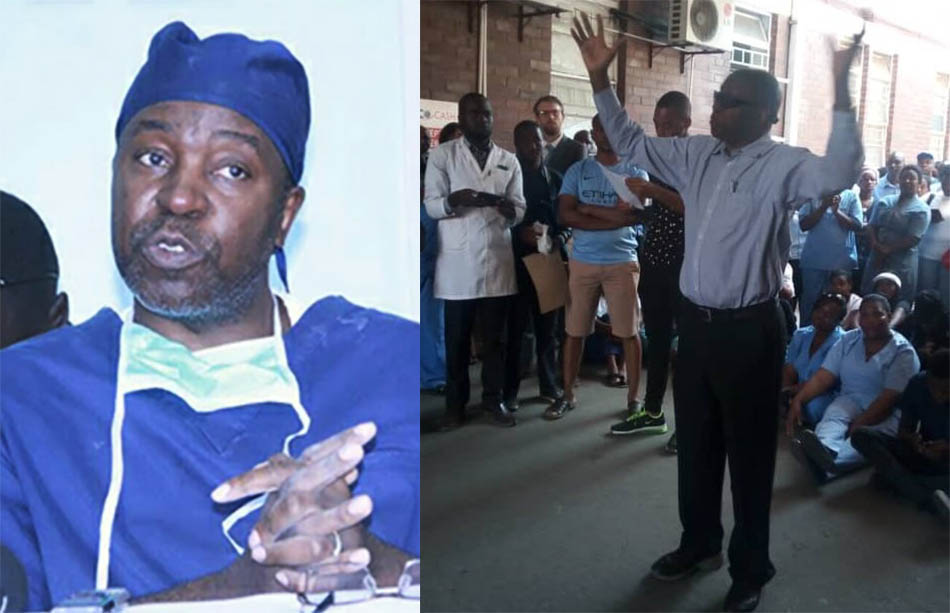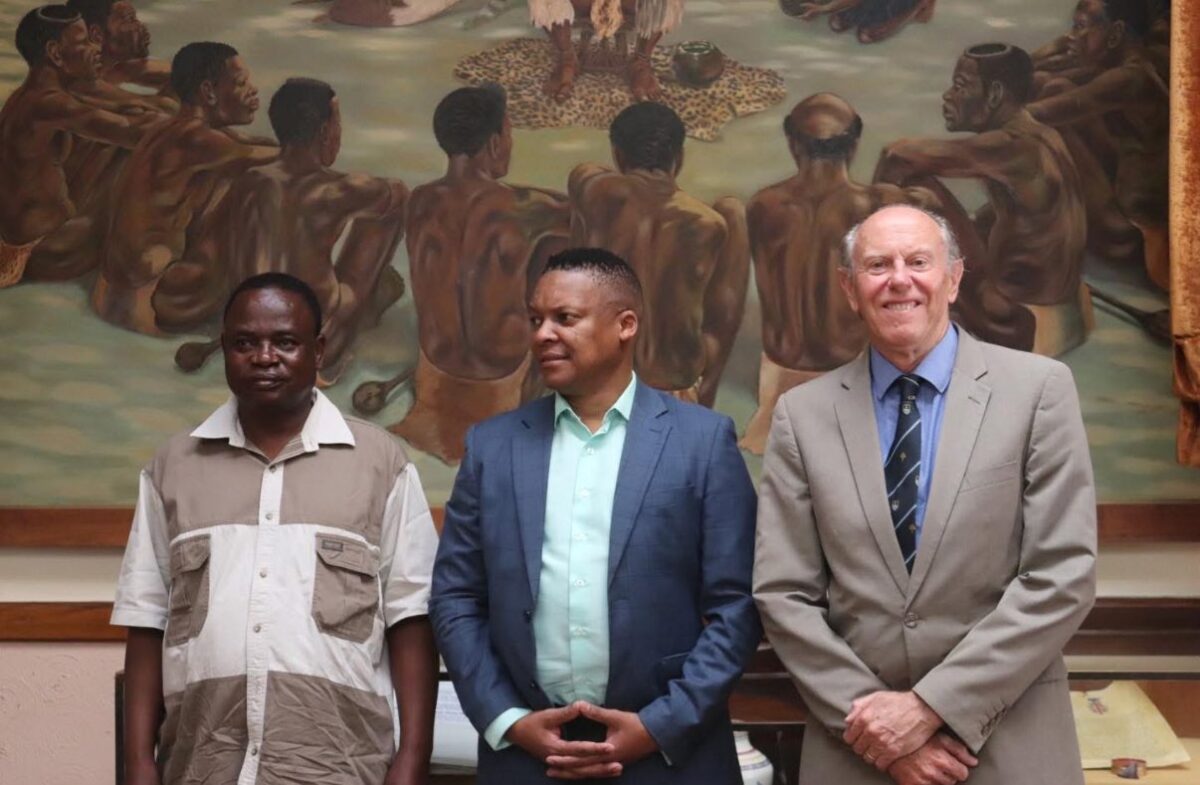HARARE – The University of Zimbabwe has suspended without pay the country’s most senior specialist paediatric surgeon accusing him of “inciting and/or taking part in the unlawful collective job action or strike by students or staff.”
Dr Bothwell Mbuwayesango, one of only three paediatric surgeons in Zimbabwe, was suspended together with Dr David Chimuka, a senior cardiothoracic surgeon, according to letters seen by ZimLive.
The Zimbabwe Hospital Doctors Association (ZHDA) said in a statement that “the training of surgeons will be undermined by this poorly considered move.”
The ZHDA said it stood in solidarity with the two doctors and the ongoing pay impasse would not be resolved without the two doctors being re-instated.
“The country should prepare for mass resignations from the university,” a senior medical doctor told ZimLive on Tuesday.
Mbuwayesango and Chimuka are senior lecturers at the University of Zimbabwe’s medical school and the decision to suspend them by vice chancellor Professor Paul Mapfumo is believed to have been taken at the instigation of Higher Education Minister, Amon Murwira.
Mbuwayesango led an all Zimbabwean medical team that separated conjoined twins in 2014 during an eight-hour operation at Harare Hospital. It was the country’s second successful separation. The first was in 1985.
Junior doctors stopped work starting on September 3 after demanding that their salaries should be indexed to the United States dollar.
Last week, senior doctors also declared that they were “incapacitated” by salaries which have been eroded by runaway inflation and would not be able to go to work.
The government maintains that the strike is illegal, but the doctors maintain that they are not on strike but merely do not have the financial means to turn up for work.
“It’s unfortunate that the most senior specialist paediatric surgeon in the country has been suspended. Dr Mbuwayesango’s value to medicine in Zimbabwe is immense, and the training of surgeons will be undermined by this poorly considered move,” the ZHDA said in a statement.
“As ZHDA, we stand in solidarity with our seniors and we would like to make it clear that job dismissals will only prolong the impasse and our members will not report for duty up until the unprecedented actions are reversed and our grievances are addressed.”
Doctors defied a government order to resume work on Monday and asked the United Nations and private businesses to help fund their return to the wards.
The doctors are in the second month of a strike over salaries which have dwindled to less than US$100 per month in some cases as a result of galloping inflation.
They say their pay has lost value by at least 1,500 percent.
The ZHDA said they have used up their savings by “subsidising the employer” for them to just report for work.
Negotiations with the government have been deadlocked as the doctors rejected a 60 percent pay increase and demanded their salaries be pegged to the US dollar.
Health Minister Obadiah Moyo at the weekend ordered the doctors to return to work, warning them with unspecified disciplinary action if they did not comply.
The government has adopted a ham-fisted response to the strike. Last month, police tried to stop the doctors from marching to parliament, until a court allowed the protest.
The leader of the doctors’ union Peter Magombeyi was last month abducted by suspected state agents, only to be released five days later after pressure from his colleagues.
The government tried to block him from travelling to neighbouring South Africa for treatment after local doctors recommended further medical assessment.
He was only allowed to leave following another court order.
The striking doctors have appealed to the World Health Organization (WHO), local businesses, churches and NGOs to help raise funding to supplement their wages.
“Lives are being lost and there is need to urgently raise resources to supplement… the salaries of 1,800 government-employed doctors,” they said.
Should the UN heed the doctors’ call, it will not be the first time it has supported health personnel in the crisis-ridden country.
Unicef ran a so-called Health Transition Fund, a multi-donor pooled fund for four years from 2011, paying out allowances to augment medical practitioners’ salaries.
















